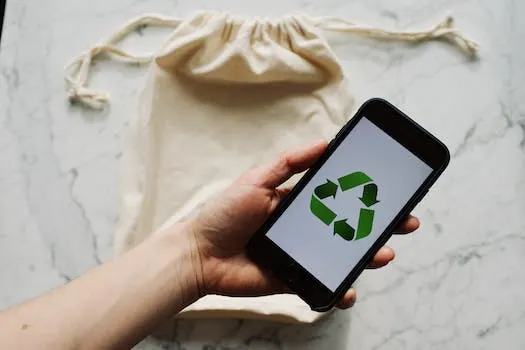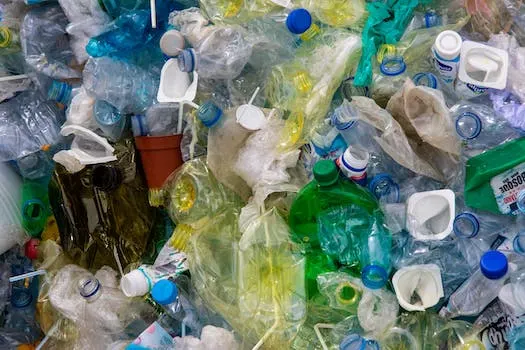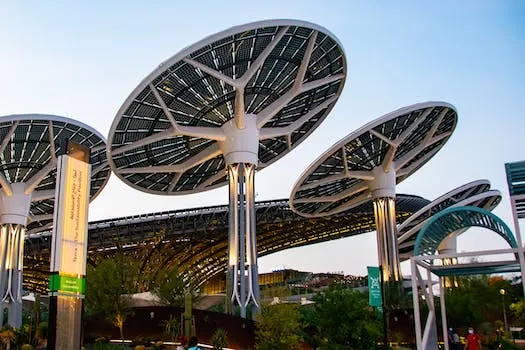
The Benefits of Starting a Home Recycling Program
Starting a home recycling program is an important way to reduce waste and conserve natural resources. It can help you reduce your environmental footprint while also saving on waste disposal costs. There are many benefits to starting a home recycling program, such as conserving energy, reducing air and water pollution, reducing greenhouse gases, and conserving natural resources. Additionally, it can support the local community by reducing waste and recovering materials for reuse.
To get started with your own home recycling program, there are several steps you can take to make a difference right in your own home. Buy reusable water bottles, straws and lunch containers instead of single-use plastics; this will reduce trash while also being more cost effective in the long run. Refuse to buy items that you don't need or use items more than once before disposing them at appropriate recycling centers; this will help decrease household waste significantly. Finally, simple tips like reducing wasted food at food businesses can go a long way towards sustainability efforts in the local community.
By following these steps when starting a home recycling program, you'll be able to make an impact on the environment while also saving money on waste disposal costs!
Benefits of Home Recycling
Recycling is an effective way to reduce the amount of waste produced and help conserve natural resources. It can also reduce pollution, landfill waste, and even save money. Some of the specific benefits of home recycling include reduced energy use, reduced pollution, decreased landfill waste, and cost savings. Recycling reduces the amount of waste sent to landfills and incinerators while conserving natural resources such as timber, water and minerals. It also prevents pollution by reducing the need to extract and process raw materials which can produce harmful emissions. Additionally, recycling conserves non-renewable natural resources by reusing materials that would otherwise be discarded or lost forever. By using recycled materials instead of new ones it takes less energy to process them which produces lower carbon emissions than creating new products from raw resources. Finally, recycling can help reduce costs associated with waste disposal as well as generate revenue if you sell recyclable materials.
Getting Started with Home Recycling
Getting started with home recycling is easy and can have a big impact on the environment. The first step is to determine which materials you can recycle in your area. Many cities and towns have local recycling programs that provide information on what materials can be recycled and where to take them, or you can check with your local waste management company for more details. Once you know what materials are accepted, it's time to set up a system for sorting and storing them. Designate a location for your recycling bin or bins, label each one so everyone in the household knows what goes into each one, and make sure everyone knows where they are located. Finally, establish a routine for taking the materials to a local collection center or recycling facility.
In addition to setting up an effective home recycling program, there are other strategies that can help reduce waste as well. Social media platforms such as websites or dashboards are great tools for promoting recycling programs and increasing participation by sharing valuable information with residents about how they can help reduce their environmental footprint through proper disposal of recyclable items like antifreeze containers at their local transfer station or other municipally recyclable items that may be accepted by their local waste management company if it is cost-effective enough to do so. Lightweight plastics also play an important role in reducing waste; however, it's important not only to consider the benefits of using lightweight plastics but also any potential drawbacks associated with them before making any decisions about how best to reduce overall waste production from our homes and communities.
Tips for Recycling at Home
Starting a home recycling program is an important step in reducing your environmental impact. To make the most of your efforts, it's important to follow some basic tips. First, be sure to rinse and dry containers before recycling them to avoid contamination. Additionally, different materials should be separated into different containers or bins for the same reason. It's also essential to check with your local recycling program for guidelines on what can and cannot be recycled in order to ensure that you are following their rules correctly. Finally, educate family members and friends about the importance of recycling and encourage them to start their own home programs as well.
When it comes to rinsing containers prior to recycling them, there is no need for a deep clean; just a quick rinse will do! Plastic bottles and jugs should always be emptied, cleaned and dried before being placed in the bin; any food residue can contaminate other materials during processing. With plastic items you can use the “poke test” – if you can poke your finger through it then it’s too thin or brittle for most recyclers so don’t put it in the bin! Lastly, avoid “wishful recycling” – when something that cannot actually be recycled is placed in the bin – as this can contaminate an entire load of recyclables causing even good materials not get recycled properly.
By following these simple tips when starting a home recycling program you will help reduce waste while also ensuring that all recyclables are processed correctly by local facilities. Educating family members and friends about why we recycle is also key; encouraging others around us helps create positive change within our communities!
Conclusion
In conclusion, starting a home recycling program is an easy and effective way to reduce your environmental footprint and save money on waste disposal costs. It's simple to get started, and there are many benefits to home recycling. Driving efficiently can help reduce emissions, while reusing materials like aluminum, paper, glass and plastics can help conserve natural resources. Small changes such as these can have a lasting effect on the environment. Additionally, reducing the amount of waste that goes into landfills or incineration plants helps keep our planet clean for future generations. With just a few simple tips you can make the most of your home recycling program and do your part in helping protect our planet for years to come!










